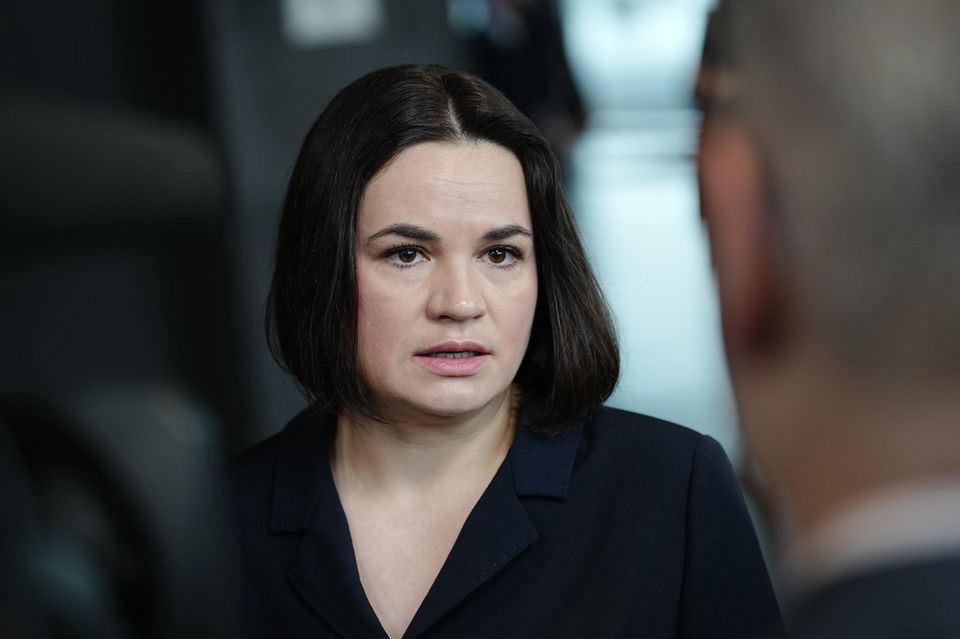Her goal: freedom for the people of Belarus and for her husband
Her path: from wife and mother to leader of the opposition
Your opponent: a dictator

Svetlana Tichanowskaja, 40, used to work as a translator.
© Picture Alliance
If her husband were to get out of prison, Svetlana Tichanowskaja said in a Deutsche Welle documentary, she would be happy to let him take over as head of the family. Also as leader of the opposition in Belarus, and as presidential candidate.
You may find this strange, because Tichanowskaya has been the face of the resistance against Alexander Lukashenko’s regime since 2020. Her husband is in prison, Since March she doesn’t even know whether he’s still alive or dead, as an anonymous letter recently claimed. The 40-year-old is raising her two children alone in her exile in Vilnius, Lithuania.
Who her husband is seems to have become less important to the outside world. Sergei Tichanovsky wanted to run against Lukashenko as a presidential candidate in 2020. When he was denied this, his wife Svetlana quickly decided to take over the candidacy, her husband joined the campaign team. Politics was about the last career the mother of two small children, who was taking a break from her job as a translator, dreamed of having. When her husband was arrested on a pretext, she just carried on
“Sometimes one person’s decisions change the course of history”
There are people who suddenly outgrow themselves politically, even though it was never their plan. Simply because at this moment the injustice, the ignorance is so great and someone has to do something. Rosa Parks, who didn’t get up on the bus when a white man asked for her seat. Ghandi, whose introduction of discriminatory identification documents for non-whites in South Africa led him to publicly burn his own.
“Sometimes a person’s decisions change the course of history,” says Tikhanovskaya. She doesn’t see herself as a hero, but when her husband couldn’t do it anymore, she took over his job without thinking. Even if it meant endangering her family, the thing that was always most important to her.
Tichanowskaya continues to fight
The resistance in Belarus has a female face, including in the protests that broke out after Lukashenko’s official re-election in August 2020. The suspicion that the election was rigged and Tichanowskaya was cheated out of her victory drove people, especially many women, to the streets. “It’s about human rights, dignity and freedom,” says Tichanowskaja, “values that women understand and support.” As an activist now trying to represent her country with her team from exile, she is fighting a battle that could drag on for years. After the public protests three years ago, the world’s eyes shifted away from Belarus. Because the regime’s massive repression has pushed the protests underground and not least because of the war in Ukraine.
Tichanowskaja firmly believes that the day will come when her work, the sacrifices and the grief will be worth it: “We have often seen that dictatorships are supposedly stable until a sudden change occurs. Many organizations work in exile to prepare for this change.” It is important to seize the window of opportunity to return Belarus to democracy and at the same time stop Russian influence.
Until then, the qualities that she believes women in particular bring to politics will help her: “empathy, patience and cooperation.” Sergei Tsikhanovsky’s prison sentence is 18 years. His wife says she is tired. And yet: “Political prisoners cannot simply decide to stop and walk out of their cell. Nor can I decide to give up. Until my husband, all political prisoners and the nine million Belarusians are freed from this expanded prison that has become my country.”
